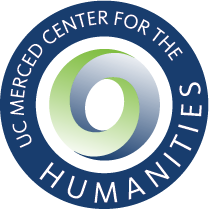
Robin Maria DeLugan is a socio-cultural anthropologist (PhD University of California, Berkeley 2004). She is the author of Reimagining National Belonging: Post-civil War El Salvador in a Global Context (University of Arizona Press 2013). This major research examines nation building in post-civil war El Salvador. Interested in the dynamics of race, ethnicity and nation, she applies an ethnographic lens to study how indigenous people in El Salvador, a population historically marginalized, are newly recognized through reforms of the national constitution; and how migration and transnationalism gives a new status to diasporic Salvadorans and expands the meaning of national belonging. Her new project looks at how three contemporary nations (Dominican Republic, El Salvador, and Spain) publicly grapple with the legacies of 1930’s state violence and repression. She asks, how do contemporary social memory practices that focus on past state violence challenge dominant ideas of national belonging in favor of constructing a more inclusive and just society. She has published in a number of journals including American Ethnologist, American Indian Quarterly, Identities: Global Studies in Culture and Power, Journal of Human Rights, Museum and Society. She is Faculty Director of the University of California, Merced’s Resource Center for Community Engaged Scholarship (ReCCES). socio-cultural anthropologist (PhD University of California, Berkeley 2004). She is the author of Reimagining Robin Maria DeLugan is a socio-cultural anthropologist (PhD University of California, Berkeley 2004). She is the author of Reimagining
Robin Maria DeLugan is an expert on nation-state formation, national identity and state-citizen dynamics with a particular focus on dynamics of race, ethnicity and nation. Primary ethnographic research focuses on El Salvador, Dominican Republic, Spain and California. She has a particular focus on the dynamics of indigenous people and the nation-state including policies and practices of mestizaje and indigenismo. Theories of social memory guide her research on how the past becomes a resource for state projects of nation building and also for civil society projects that contest dominant ideas of the nation. For DeLugan, museums and commemorations are central sites of research and practice for understanding dynamic national societies grappling with exclusion and legacies of state violence. She has expertise in collaborative, equity-oriented and community-engaged research and has contributed to building the infrastructure at the University of California, Merced to support and promote this approach to research.ert on nation-state formation, national identity and state-citizen dynamics with a particular focus on dynamics of













